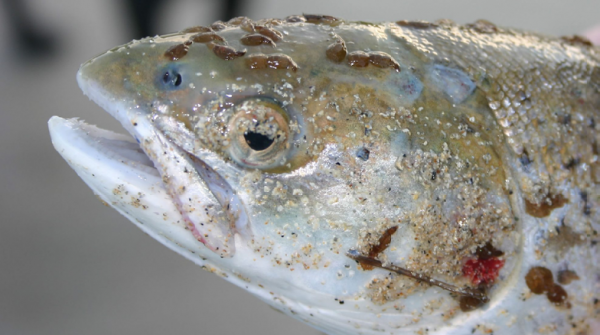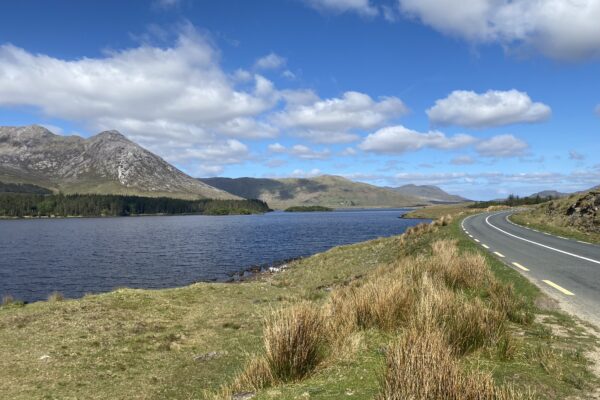Dear Minister Heyden,
On behalf of Salmon Watch Ireland, I write to express our profound concern at the recent determination of the Aquaculture Licences Appeals Board (ALAB). The decision, in our considered view, undermines the protection of Ireland’s wild Atlantic salmon and sea trout and fails to uphold the standards required under Irish and European law.
The determination highlights a deeply troubling reality: operators, despite having breached and continuing to breach the terms and conditions of their licences, appear able to operate without sanction. This sets a dangerous precedent, erodes public confidence in the regulatory process, and calls into question the integrity of environmental governance.
We are further concerned that:
- The impacts on wild salmon and sea trout populations, particularly within the Waterville system and other iconic fisheries, were not adequately assessed.
- The implications for angling tourism — a vital contributor to rural economies — were ignored.
- Key inspections were delayed, raising doubts as to whether site-specific environmental risks were properly evaluated.
- The recent transfer of salmon other than smolts, currently under investigation by your Department, raises serious compliance and biosecurity issues that underscore the need for stricter enforcement.
Minister, you will recall that in 2019 your Department issued an enforcement order in response to similar breaches, ensuring that aquaculture operators were held to account. The present circumstances demand no less. A comparable order is urgently required to prevent further non-compliance and ecological damage.
We must highlight the continuing reliance on Section 19A(4) of the Fisheries (Amendment) Act 1997, which permits aquaculture operators to continue operating under their original licence terms and conditions while renewals have been lodged.
In its Deenish determination (AP1/2019), ALAB accepted that condition 2(e) of the licence had been blatantly breached. Harvesting almost four times the legal limit is not a technicality; it is a wholesale disregard for the terms of the licence. Yet ALAB concluded that revoking the statutory entitlement would be “disproportionate.”
MOWI has previously sought to amend the terms and conditions of its licence; however, this request was refused by the State. Notwithstanding this refusal, the company has continued to operate in breach of its extant licence and remains in contravention of the legally binding terms and conditions governing its operations.
The consequences of this are grave. Section 19A(4) can now be interpreted as a shield that allows operators who are in breach of their licences to continue farming under the protection of the "law", even while those breaches remain unpunished. No fines, no suspensions, no meaningful sanction. The State’s hands are tied, not because it lacks evidence, but because the appeal process itself provides cover for non-compliance.
This decision shatters the authority of the Minister and the Department to regulate aquaculture. It tells every operator that licence conditions are little more than suggestions, that breaches can be bargained away, and that even blatant non-compliance carries no real consequence. It empowers those already inclined to disregard the law, while leaving local communities and fragile marine environments unprotected and at risk.
The integrity of Ireland’s regulatory regime depends on the principle that a licence is binding and enforceable. But Section 19A(4), as it currently stands, makes a mockery of that principle. Until this provision is repealed, aquaculture operators will continue to enjoy a legal loophole that lets them operate outside the law, immune from sanction, and secure in the knowledge that environmental safeguards can be breached without consequence.
The Government has previously undertaken to delete Section 19A(4). That promise must now be honoured. Every day this provision remains in force, the credibility of aquaculture regulation is eroded, public trust is lost, and Ireland’s environmental protections are sacrificed to a system that rewards non-compliance.
This undermines public confidence in the regulatory system and creates the perception that aquaculture operators can operate above the law. The provision fatally weakens environmental safeguards by allowing ongoing activity despite established breaches.
You have previously undertaken to remove Section 19A(4). We therefore respectfully ask: when will this deletion be implemented? Until this section is repealed, the public will continue to perceive that aquaculture operators can breach conditions without consequence, and that the State’s regulatory regime tolerates non-compliance.
The ALAB determination also exposes Ireland to potential breaches of binding European legislation, including:
- The Habitats Directive (92/43/EEC), requiring the strict protection of species and habitats of Community interest.
- The Water Framework Directive (2000/60/EC), obliging Member States to prevent deterioration of aquatic ecosystems.
- The Environmental Impact Assessment Directive (2011/92/EU as amended by 2014/52/EU), mandating rigorous assessment of projects likely to have significant environmental effects.
The ALAB decision appears inconsistent with the precautionary principle and threatens both Ireland’s natural heritage and our compliance with EU law. Without corrective action, there is a real risk of irreparable ecological harm and legal exposure at European level.
Minister, we therefore respectfully implore you to initiate a judicial review of this ALAB decision, to issue a new enforcement order as was done in 2019, and to honour your commitment to delete Section 19A(4) without delay.
We would welcome the opportunity to meet with you at the earliest opportunity to present detailed evidence of our concerns and to work constructively towards stronger safeguards for Ireland’s wild salmonid populations.
Thank you for your urgent attention to this matter.



